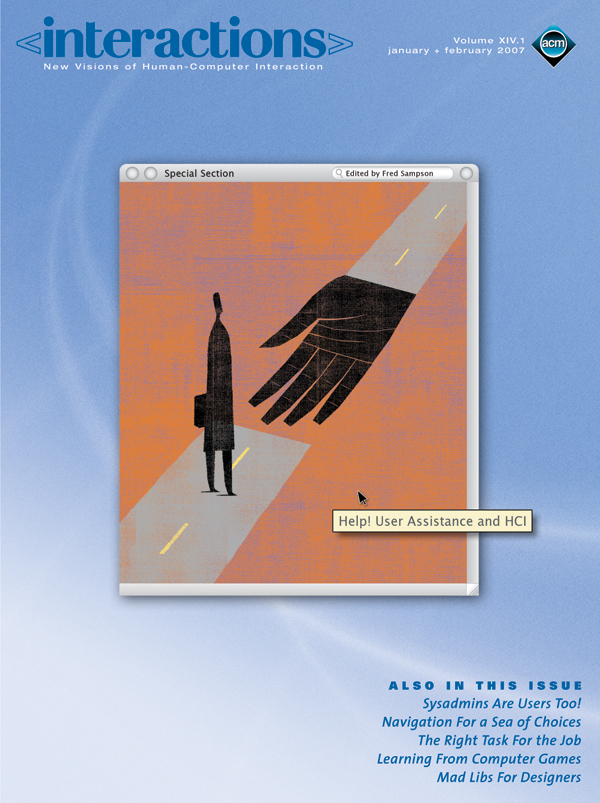Authors:
Fred Sampson
Help systems have come a long way since the days of Microsoft Windows Help 1.0, and the capabilities of user-assistance technologies continue to grow and develop. More and more help is finding its way into the user interface, through popups, tooltips, mouseovers, and better labels and hints right where users need it. At the same time, new ways of educating users are finding their way into what used to be a closed system: traditional help systems created as a separate component. Today, information about a product comes from many sources: marketing and sales collateral, graphics and text in the…
You must be a member of SIGCHI, a subscriber to ACM's Digital Library, or an interactions subscriber to read the full text of this article.
GET ACCESS
Join ACM SIGCHIIn addition to all of the professional benefits of being a SIGCHI member, members get full access to interactions online content and receive the print version of the magazine bimonthly.
Subscribe to the ACM Digital Library
Get access to all interactions content online and the entire archive of ACM publications dating back to 1954. (Please check with your institution to see if it already has a subscription.)
Subscribe to interactions
Get full access to interactions online content and receive the print version of the magazine bimonthly.







Post Comment
No Comments Found